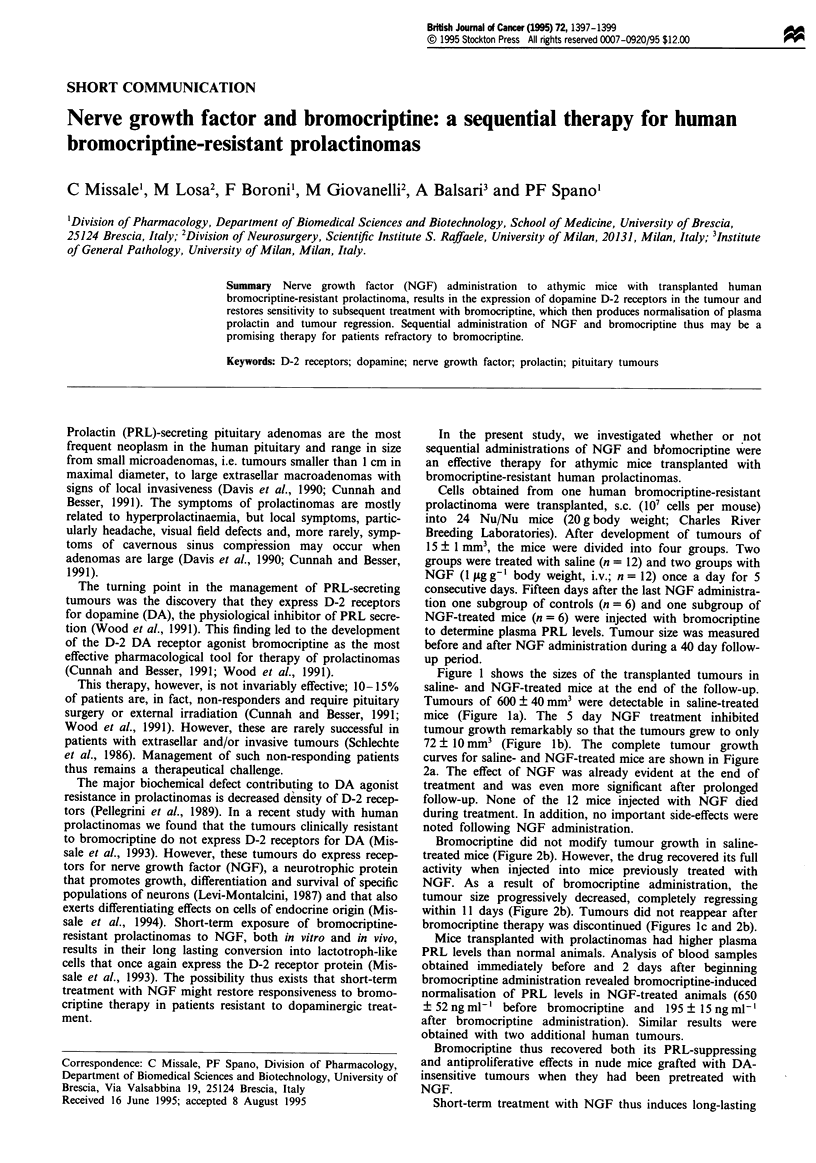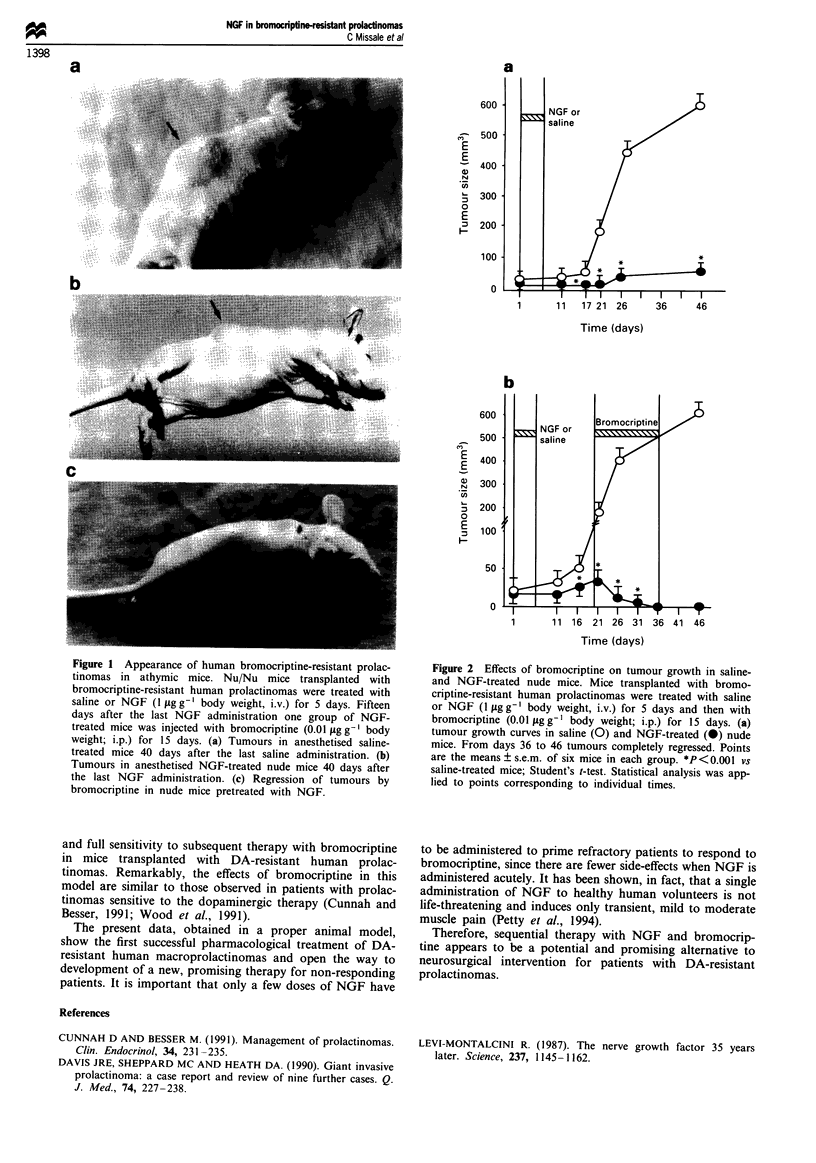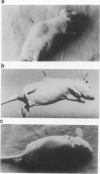Abstract
Nerve growth factor (NGF) administration to athymic mice with transplanted human bromocriptine-resistant prolactinoma, results in the expression of dopamine D-2 receptors in the tumour and restores sensitivity to subsequent treatment with bromocriptine, which then produces normalisation of plasma prolactin and tumour regression. Sequential administration of NGF and bromocriptine thus may be a promising therapy for patients refractory to bromocriptine.
Full text
PDF


Images in this article
Selected References
These references are in PubMed. This may not be the complete list of references from this article.
- Cunnah D., Besser M. Management of prolactinomas. Clin Endocrinol (Oxf) 1991 Mar;34(3):231–235. doi: 10.1111/j.1365-2265.1991.tb00299.x. [DOI] [PubMed] [Google Scholar]
- Davis J. R., Sheppard M. C., Heath D. A. Giant invasive prolactinoma: a case report and review of nine further cases. Q J Med. 1990 Mar;74(275):227–238. [PubMed] [Google Scholar]
- Missale C., Boroni F., Losa M., Giovanelli M., Zanellato A., Dal Toso R., Balsari A., Spano P. Nerve growth factor suppresses the transforming phenotype of human prolactinomas. Proc Natl Acad Sci U S A. 1993 Sep 1;90(17):7961–7965. doi: 10.1073/pnas.90.17.7961. [DOI] [PMC free article] [PubMed] [Google Scholar]
- Missale C., Boroni F., Sigala S., Zanellato A., Dal Toso R., Balsari A., Spano P. Nerve growth factor directs differentiation of the bipotential cell line GH-3 into the mammotroph phenotype. Endocrinology. 1994 Jul;135(1):290–298. doi: 10.1210/endo.135.1.8013363. [DOI] [PubMed] [Google Scholar]
- Pellegrini I., Rasolonjanahary R., Gunz G., Bertrand P., Delivet S., Jedynak C. P., Kordon C., Peillon F., Jaquet P., Enjalbert A. Resistance to bromocriptine in prolactinomas. J Clin Endocrinol Metab. 1989 Sep;69(3):500–509. doi: 10.1210/jcem-69-3-500. [DOI] [PubMed] [Google Scholar]
- Petty B. G., Cornblath D. R., Adornato B. T., Chaudhry V., Flexner C., Wachsman M., Sinicropi D., Burton L. E., Peroutka S. J. The effect of systemically administered recombinant human nerve growth factor in healthy human subjects. Ann Neurol. 1994 Aug;36(2):244–246. doi: 10.1002/ana.410360221. [DOI] [PubMed] [Google Scholar]
- Schlechte J. A., Sherman B. M., Chapler F. K., VanGilder J. Long term follow-up of women with surgically treated prolactin-secreting pituitary tumors. J Clin Endocrinol Metab. 1986 Jun;62(6):1296–1301. doi: 10.1210/jcem-62-6-1296. [DOI] [PubMed] [Google Scholar]
- Wood D. F., Johnston J. M., Johnston D. G. Dopamine, the dopamine D2 receptor and pituitary tumours. Clin Endocrinol (Oxf) 1991 Dec;35(6):455–466. doi: 10.1111/j.1365-2265.1991.tb00928.x. [DOI] [PubMed] [Google Scholar]



